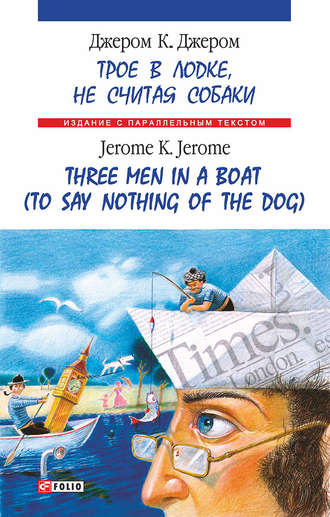Троє в одному човні (як не рахувати собаки) = Three Men in a Boat (to Say Nothing of the Dog)

Полная версия
Троє в одному човні (як не рахувати собаки) = Three Men in a Boat (to Say Nothing of the Dog)
Жанр: юмористическая литератураюмористическая прозалитература 19 векаанглийская классикадвуязычная литература (билингва)
Язык: Украинский
Год издания: 1889
Добавлена:
Настройки чтения
Размер шрифта
Высота строк
Поля
Конец ознакомительного фрагмента
Купить и скачать всю книгу








